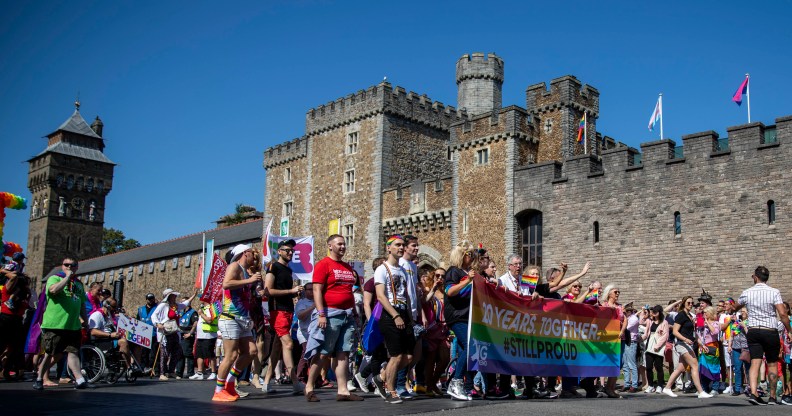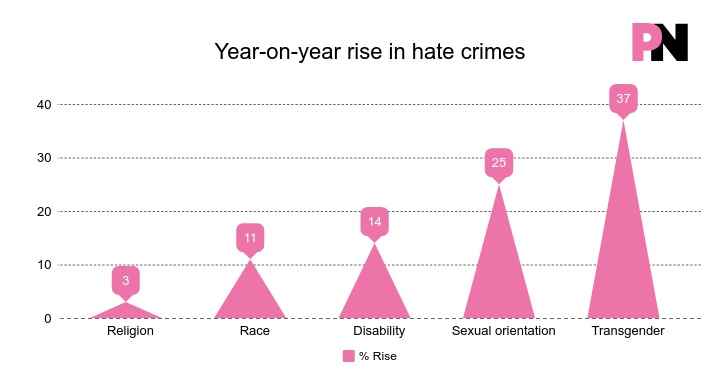Man pummelled his neighbour while calling him a ‘f*****g queer’ in horrific homophobic attack

An LGBTQ+ Pride parade in Cardiff, Wales. (Barcroft Media via Getty Images)
A man in Wales punched his neighbour and hurled horrific homophobic abuse at him after allegedly assaulting his partner in what the courts called a “nasty situation”.
Andrew James Harrison, 43, admitted the assault by beating Jack William David Jones on July 22 this year.
The attack left Jones with a cut upper lip after Harrison beat his neighbour and called him a “faggot” and a “queer”, reported NorthWalesLive.
What happened?
Prosecutors accused Harrison of assaulting Jones’ partner Adele Christian, the North-East Wales Magistrates Court in Mold, Flintshire, heard.
Harrison came out of his house at Maes Ten, Cyamau and challenged Jones to a brawl.
Prosecutor John Wilde told the court: “The defendant said to him, ‘It’s all your fault you f*****g faggot.’
“He then hit him in the face and called him a ‘f*****g queer.’
“Jones was cut on his upper lip. The defendant didn’t deny the incident.”
However, Harrison expressed remorse for what had happened.
Moreover, Wilde argued that the “homophobic aspect” of the attack aggravated the incident further.
Magistrates judges called the incident a “nasty situation”.
As a result, courts fined Harrison £60 and ordered him to pay £100 compensation to the victim and pay £117 in costs and surcharges.
LGBT+ hate crime has rocketed in England and Wales.
The ruling comes after reports of hate crimes against LGBT+ people in England and Wales have rocketed according to new data compiled by the Home Office.

Hate crimes against trans people rose faster than for any other protected group
There was a 25 per cent rise in hate crimes based on sexual orientation. While anti-trans hate crime has more than quadrupled in the last five years.
One number in the swathe of hate crime statistics was the case of a 13-year-old arrested in Gwynedd, Wales, in an alleged attack that left a member of an LGBT+ youth group hospitalised.
The attacked stunned the rural community, with activists highlighting it as a crucial example of the need for increased diverse education.
While the spike in hate crime can in part be contributed to refined, more accessible reporting practices, the increase comes amid growing protests against LGBT-inclusive education across the UK.

